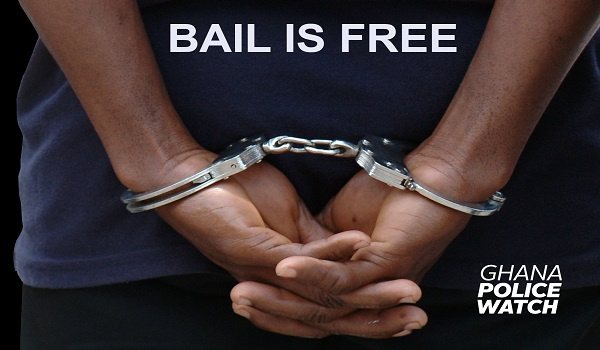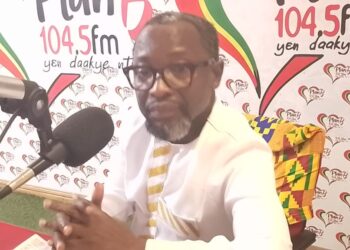Chief Inspector Morgan with the Tema Community 2 District Police Command has explained that bail does not require paying money to any police officer but a process of procuring the release of an accused person from legal custody.
He spoke on Plan B FM’s morning show ‘Nkosuo Nsem’ hosted by Nana Yaw Abrompa
“ For bail to be granted, the accused person undertakes that he/she would be available at such a time and place specified by the bail bond, In a bail application, two parties may be required. The first is the surety, being the person who gives the undertaking and the second is the principal party being the accused person. The laws governing bail are the 1992 Constitution, the Criminal Procedure Code, 1960 (Act 30) hereinafter referred to as Act 30, and judicial precedents or case law”
He said the rationale behind bail is based on the need to safeguard the basic rights inherent in the human being. Article 14 of the 1992 Constitution guarantees the liberty of persons (even though this guarantee is not absolute and subject to several exceptions). Article 19 provides in subsection 2(c) that an accused person is presumed innocent until proven guilty. Thus, failure to grant bail to an accused person may be deemed pronouncing on the guilt of the accused even before they are tried.
Previously, some offenses were considered non-bailable. These were offenses provided for in section 96(7) of Act 30 such as treason, subversion, murder, robbery, hijacking, piracy, rape, defilement, escape from lawful custody, or where a person is being held for extradition to a foreign country.
In Ghana, three types of bail applications are available to an accused person.
The first is police inquiry bail which is granted by the police under their investigation. Thus if the police fail to release the accused, the police are mandated to bring the accused before a court within forty-eight hours after his arrest or detention.
The second type is bail pending trial. It is granted at any time during the trial. An oral or written application may be made to the court for consideration or the court could grant it on its motion.
The third type of bail is bail pending appeal. It is worth noting that bail is free and the amount stated in the bail bond may only be enforced when the accused fails to appear to stand trial.










Discussion about this post